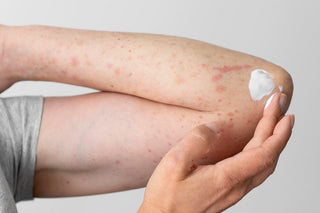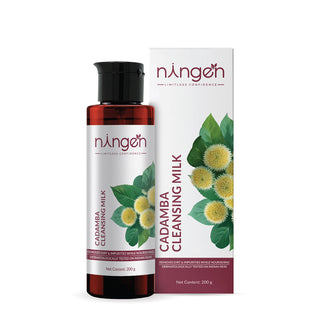Have you ever experienced a rash on your skin that's accompanied by intense itching? It can be a frustrating and uncomfortable experience, leaving you wondering what could be causing it.
Skin rashes are a common occurrence, and they can be caused by a variety of factors, including allergies, infections, and autoimmune disorders.
However, when a rash is accompanied by itching, it can be a sign of a more serious issue. Understanding the causes of skin rashes with itching is crucial in determining the appropriate treatment.
Rashes are a common skin problem that affects people of all ages. A rash is a change in the skin's appearance, such as redness, bumps, blisters, or a change in texture. Itching is a common symptom of a rash and can be mild to severe. Let's explore some of the most common reasons for rashes with itching.
-
Contact dermatitis
Contact dermatitis is a type of skin rash that occurs when the skin comes into contact with an irritant or allergen. Irritants can include soaps, detergents, cleaning products, and other chemicals. Allergens can include plants, such as poison ivy or oak, or certain metals, such as nickel. Contact dermatitis typically appears as red, itchy bumps or blisters on the affected area.
-
Eczema
Eczema is a chronic skin condition that causes dry, itchy, and inflamed skin. It's a common condition that affects millions of people around the world. Eczema is caused by a combination of genetic and environmental factors. It often appears as a red, scaly rash that can be very itchy. The rash can occur anywhere on the body, but it's most commonly found on the hands, feet, face, and neck.
-
Psoriasis
Psoriasis is a chronic autoimmune disease that affects the skin. It's characterized by thick, red, scaly patches that can be itchy and painful. The patches can occur anywhere on the body, but they're most commonly found on the scalp, elbows, knees, and lower back. Psoriasis is caused by an overactive immune system that mistakenly attacks healthy skin cells.
-
Hives
Hives, also known as urticaria, are a type of skin rash that appears as red, itchy bumps or welts on the skin. Hives can be caused by an allergic reaction to food, medication, or other allergens. They can also be triggered by physical stimuli, such as heat, cold, or pressure. Hives usually go away on their own within a few hours or days, but they can be very uncomfortable.
-
Insect bites
Insect bites are a common cause of skin rashes and itching. Mosquitoes, bees, wasps, and other insects can all cause allergic reactions that result in red, itchy bumps on the skin.
-
Fungal infections
Fungal infections, such as ringworm and athlete's foot, can cause skin rashes and itching. These infections are caused by a type of fungus that grows on the skin. They typically appear as red, scaly patches that can be itchy and uncomfortable. Fungal infections are usually treated with antifungal medications.
-
Viral infections
Certain viral infections can cause skin rashes and itching. Chickenpox, measles, and shingles are all viral infections that can result in a rash. The rash is usually accompanied by other symptoms, such as fever and fatigue. Viral rashes usually go away on their own within a few days or weeks.
-
Medications
Some medications can cause skin rashes and itching as a side effect. Antibiotics, anticonvulsants, and chemotherapy drugs are all known to cause skin rashes. If you're taking medication and notice a skin rash, it's important to speak with your doctor right away.
-
Stress
Stress can also cause skin rashes and itching. When you're under stress, your body releases certain hormones that can trigger an inflammatory response in the skin.
How to Prevent your skin from rashes and irritation?
- Avoid irritants: Identify and avoid any substances that cause an allergic reaction or irritation to your skin, such as harsh soaps, detergents, and chemicals.
- Moisturize: Keeping your skin moisturized helps prevent dryness and irritation that can lead to rashes. Use a moisturizer that is gentle on your skin and free of fragrances and other irritants.
- Wear protective clothing: If you are exposed to irritants or allergens, wear protective clothing such as gloves, long-sleeved shirts, and pants.
- Avoid scratching: Although it may be tempting, scratching can worsen the rash and lead to infection. Use a cold compress or over-the-counter anti-itch cream to relieve itching.
- Keep your skin clean: Cleanse your skin with Ningen Neem Tulsi face wash or Ningen Cadamba Cleanser as it also works effectively on skin irritation and inflammation.
How to avoid irritants and allergens
To avoid irritants and allergens that can cause rashes and itching on your skin, it is important to identify and eliminate exposure to them. Some common irritants and allergens include certain fabrics, soaps, detergents, perfumes, and cosmetics. To prevent exposure, consider using hypoallergenic products and avoiding harsh chemicals. Additionally, it is important to maintain good hygiene by regularly washing hands and keeping the skin clean and dry. If you suspect an allergy.
Your skincare routine matters
Maintaining a proper skincare routine can prevent rashes and irritation on your skin by keeping the skin clean and well-moisturized. When the skin is dirty or dry, it can become irritated and prone to rashes. Regular cleansing and moisturizing can help to keep the skin healthy and prevent irritation. Additionally, using gentle and non-irritating products can also help to prevent rashes and irritation on the skin. Finally, avoiding triggers that may cause irritation, such as certain fabrics or chemicals, can also help to prevent skin rashes and irritation. Try Ningen face care and body care products for best results.
Maintain healthy immune system
Maintaining a healthy immune system is important to prevent rashes and itching on your skin. Here are some ways to do so:
- Eat a nutritious diet that includes plenty of fruits and vegetables. These foods are rich in vitamins and antioxidants that help support a healthy immune system.
- Get regular exercise to help strengthen your immune system and improve circulation.
- Practice good hygiene to prevent infections that can weaken the immune system. This includes washing your hands regularly and avoiding contact with people who are sick.
- Get enough sleep to help your body repair and regenerate.
- Manage stress levels through relaxation techniques such as meditation or yoga. High stress levels can weaken the immune system and make you more susceptible to infections.
- Avoid exposure to irritants and allergens that can trigger rashes and itching on the skin.
To cap it all it is important to protect your skin from germs, pollutants and bacteria to avoid triggers which cause rashes and irritation . Use mild gentle skincare products formulated with natural ingredients that go well with your skin concerns too. Try Ningen for best results.









